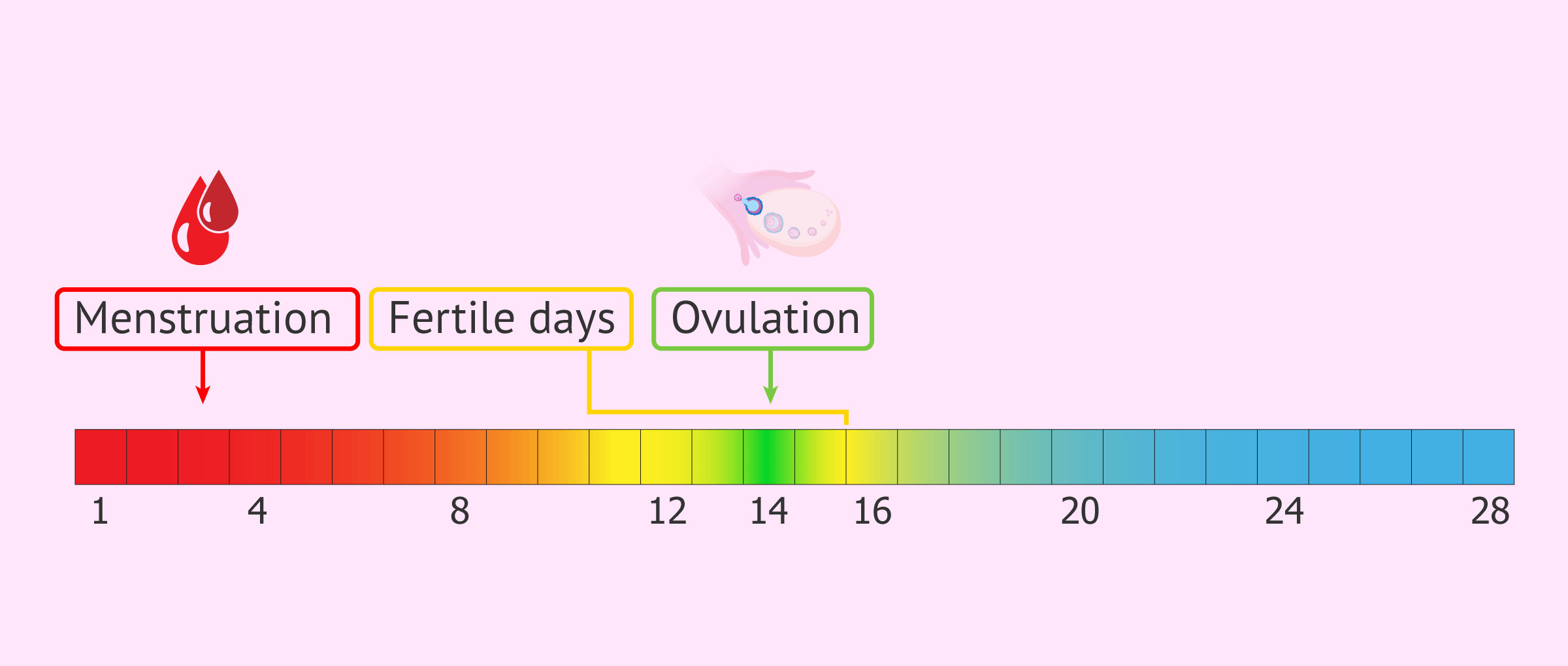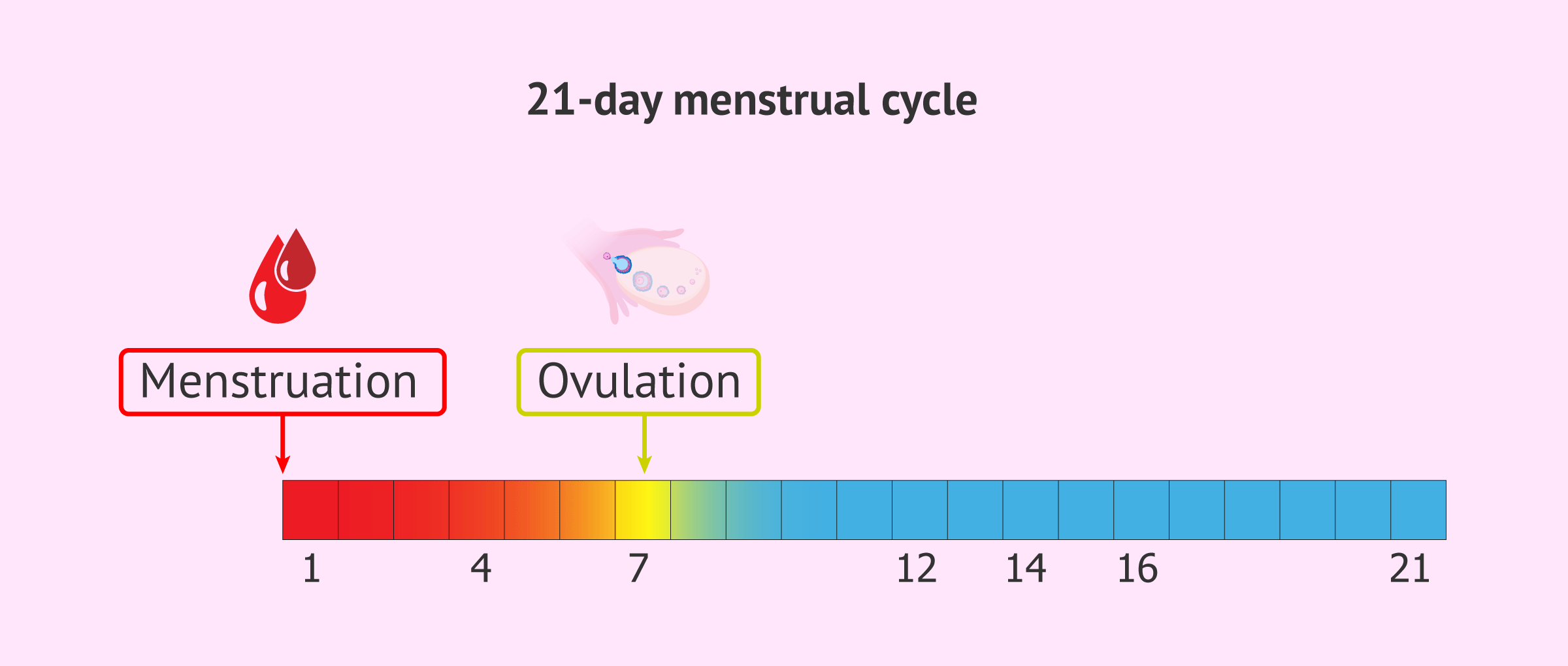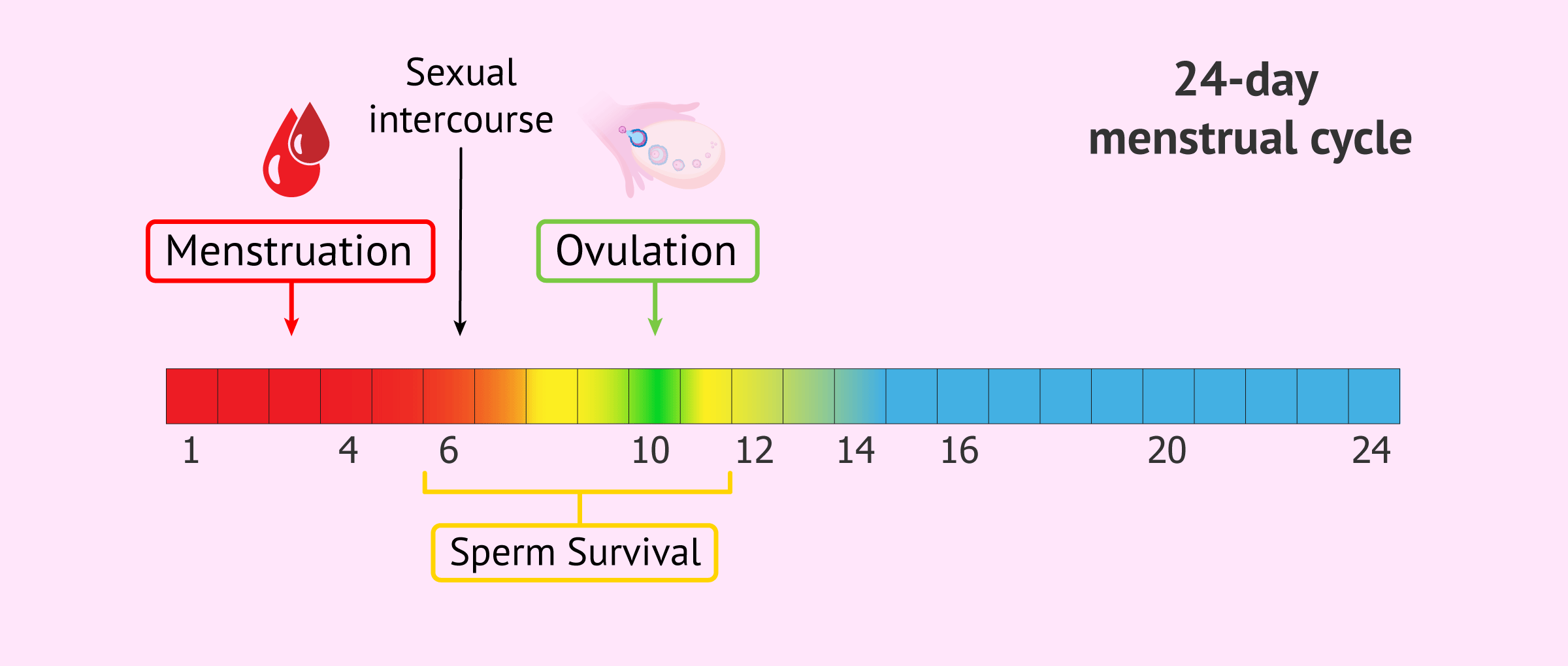Generally, it is said that pregnancy cannot occur with menstruation and that it is safe to have unprotected sex at that time. However, the possibility of becoming pregnant during menstruation is a cause of concern for many women, as they do not know whether this statement is a myth or not.
The truth is that a woman's chances of becoming pregnant are greatest during her fertile days, which do not usually coincide with the days of menstruation. Thus, the chances of pregnancy during menstruation are not high, but they do exist.
Therefore, it is very important to keep in mind that, if pregnancy is not desired, it is advisable to use a contraceptive method.
Provided below is an index with the 7 points we are going to expand on in this article.
- 1.
- 2.
- 3.
- 4.
- 4.1.
- 4.2.
- 4.3.
- 4.4.
- 4.5.
- 4.6.
- 4.7.
- 5.
- 6.
- 7.
When is it most likely to become pregnant?
Generally, one of the ovaries releases an egg in the middle of the menstrual cycle, which is called ovulation. This egg expelled by the ovaries is collected by the fallopian tubes. Thus, fertilization can occur when the sperm fuses with the egg as it moves down the tubes toward the uterus.
Thus, the middle of the menstrual cycle is the time when there is the greatest chance of pregnancy. The reason is that in the periovulatory period it is easier for the encounter between egg and sperm to occur and, therefore, a gestation. This is why the days close to ovulation may be known as the fertile days fertile days.
Considering that the average length of a menstrual cycle is 28 days, ovulation is most likely to occur on day 14. Therefore, most often a woman does not ovulate while she is menstruating, since menstruation only lasts about 5-7 days.
Is it possible to ovulate with my period and get pregnant?
Despite the above, not all women have the same menstrual cycle length. In fact, a menstrual cycle may be shortened or lengthened and may last as long as 21-35 days.
In these cases, generally, what varies is the duration of the first phase of the cycle, the follicular phase, which is prior to ovulation. Therefore, in a short menstrual cycle, ovulation is not expected to occur in the middle of the cycle, but would be brought forward by the shortening of the follicular phase.
Thus, if a woman has a 21-day menstrual cycle, ovulation would occur around day 7. Thus, it would be possible for a woman to ovulate while she is finishing her menstruation.
On the other hand, it also comes into play that spermatozoa are able to survive for approximately 4-5 days in the female reproductive tract. This means that pregnancy could occur if unprotected sexual intercourse takes place up to 5 days before ovulation.
As an example, in a short 24-day cycle, a woman might ovulate on day 10. If sexual intercourse takes place during the final days of menstruation (e.g., day 6) or in the days following, when the woman ovulates on day 10 she will still have live sperm capable of resulting in pregnancy.
Finally, it is important to mention that if the menstrual cycle is irregular, it is more complicated to predict which day ovulation will occur. In addition, the timing of ovulation can also be altered by certain situations such as stress or hormonal imbalances, making it difficult to know exactly when a woman is ovulating.
Because of this, if you want to avoid pregnancy, it is advisable to always use a contraceptive method. In addition, if it is a barrier to contraception, it will also prevent sexually transmitted diseases (STDs).
Pregnancy days before the menstrual period starts
As discussed above, a woman has a certain chance of becoming pregnant if she has sexual intercourse during menstruation or in the days immediately following menstruation, especially if she has short menstrual cycles.
However, the chances of conceiving in the days immediately preceding menstruation are even lower. This is because the egg can only be fertilized within the first 24 hours or so after ovulation.
However, there is no totally safe period within the menstrual cycle to have unprotected sex without contraception to avoid the risk of pregnancy, as it is usually unknown when ovulation has occurred.
FAQs from users
Can pregnancy occur close to my period?
The probability is low, but yes, you can get pregnant being in your days close to your period, just like during menstruation. If the menstrual cycles are short in a woman, the fertile days (close to ovulation) are very close to those of the period, as we have explained in the previous picture. Therefore, if we add to this that the sperm can last up to 4 days alive inside the woman... yes, pregnancy can occur by having intercourse during the period.
How can you know if you are pregnant if you menstruate?
There is no way to know until the woman's new cycle begins. If there has been a pregnancy, she will not have a period the following month and, if she takes a pregnancy test, it will be positive.
What are the symptoms of pregnancy with menstruation?
In case the woman becomes pregnant, she will have the usual symptoms of pregnancy, such as absence of menstruation, tiredness, breast tenderness, etc. To check if she is really pregnant, she will have to take a pregnancy test, as these symptoms are very general and similar to those of premenstrual syndrome.
Can pregnancy occur during a normal period or does it happen when it is less abundant?
The period can be normal, both in duration and abundance of bleeding, that is, the woman does not have to notice anything strange in her menstruation. There is no way to identify if a woman can become pregnant by the type of vaginal bleeding she has during that menstrual cycle, so it is important to use contraceptives to avoid unwanted pregnancies.
Is it possible to menstruate while pregnant?
No, there is no menstruation during pregnancy, although bleeding may occur. If it is heavy bleeding, such as menstrual bleeding, it is advisable to see a doctor, as it may be due to a miscarriage.
Can I have sex on my period to get pregnant?
If you want to get pregnant, you should not have sexual intercourse at that time. The best time to get pregnant is during the fertile days, which are those close to ovulation, approximately on day 14 of the cycle. Therefore, if pregnancy is desired, it is advisable to have intercourse on ovulation days and not during menstruation.
Is it possible to have sexual intercourse during menstruation?
Yes, it is possible to have sex during the days of menstruation if that is what the woman desires.
However, it is important to remember that there is no safe period to avoid pregnancy during the menstrual cycle and, thus, pregnancy would be possible with menstruation if sexual intercourse takes place without contraceptive protection.
Therefore, it is advisable to use a contraceptive method even if you have sex during your period if you do not want to become pregnant. In addition, if it is barrier contraception (such as a condom), it will prevent the spread of sexually transmitted diseases (STDs).
Recommended readings
For more information on the menstrual cycle, please visit the following link: The menstrual cycle: what happens in each of its phases?
If, on the other hand, you are interested in learning more about contraceptive methods, we recommend you read this article: Contraceptive methods: types, efficacy, risks, and prices.
We make a great effort to provide you with the highest quality information.
🙏 Please share this article if you liked it. 💜💜 You help us continue!
References
Ayoola AB, Zandee GL, Adams YJ. Women's Knowledge of Ovulation, the Menstrual Cycle, and Its Associated Reproductive Changes. Birth. 2016 Sep;43(3):255-62. (See)
Campbell LR, Scalise AL, DiBenedictis BT, Mahalingaiah S. Menstrual cycle length and modern living: a review. Curr Opin Endocrinol Diabetes Obes. 2021 Dec 1;28(6):566-573. (See)
Deligeoroglou E, Creatsas G. Menstrual disorders. Endocr Dev. 2012;22:160-170. (See)
Hawkins SM, Matzuk MM. The menstrual cycle: basic biology. Ann N Y Acad Sci. 2008;1135:10-8. (See)
Mihm M, Gangooly S, Muttukrishna S. The normal menstrual cycle in women. Anim Reprod Sci. 2011 Apr;124(3-4):229-36. (See)
Simmons RG, Jennings V. Fertility awareness-based methods of family planning. Best Pract Res Clin Obstet Gynaecol. 2020 Jul;66:68-82. (See)
Sohda S, Suzuki K, Igari I. Relationship Between the Menstrual Cycle and Timing of Ovulation Revealed by New Protocols: Analysis of Data from a Self-Tracking Health App. J Med Internet Res. 2017 Nov 27;19(11):e391. (See)
FAQs from users: 'Can a woman get pregnant 2 days after her period?', 'Can pregnancy occur close to my period?', 'Can you get pregnant a week before your period?', 'How can you know if you are pregnant if you menstruate?', 'Can you get pregnant on your period on the pill?', 'What are the symptoms of pregnancy with menstruation?', 'What are the chances of getting pregnant on your period from precum?', 'Can pregnancy occur during a normal period or does it happen when it is less abundant?', 'Can you take a pregnancy test while on period?', 'Is it possible to menstruate while pregnant?', 'Can you get pregnant by kissing while on your period?', 'Can I have sex on my period to get pregnant?', 'Can you get pregnant on your period in the shower?', 'Is it possible to have sexual intercourse during menstruation?', 'Can you get pregnant late in your cycle?', 'Can a woman get pregnant and get her period?' and 'Can you get pregnant after your period stops for menopause?'.
Authors and contributors

More information about Cristina Algarra Goosman





So is there a time in the cycle when it is impossible to get pregnant?
Hello lula34,
While the chances of pregnancy fluctuate throughout a woman’s menstrual cycle, if you are having unprotected sex there is a chance of pregnancy.
So if you want to avoid pregnancy you will need to use a contraceptive method.
Best regards
Hi, I had sex one day after the end of my period, can I be pregnant?
Hello Gweneth,
Having sex outside the fertile window decreases the chances of pregnancy but does not eliminate them, since ovulation that determines the fertile window does not have to occur every cycle on the same day.
This phenomenon plus the possibility of the sperm surviving inside the woman’s reproductive system suggests that although it is unlikely there is a possibility of pregnancy.
I recommend that if after 15 days of sexual intercourse you have not had your period or if you are regular you have lost it, you should take a pregnancy test.
I hope I have solved your doubt,
Best regards